Tinkoff-Saxo staying grounded with Majka at Vuelta a Espana
Pole ninth on GC heading into his favoured Pyrenean terrain
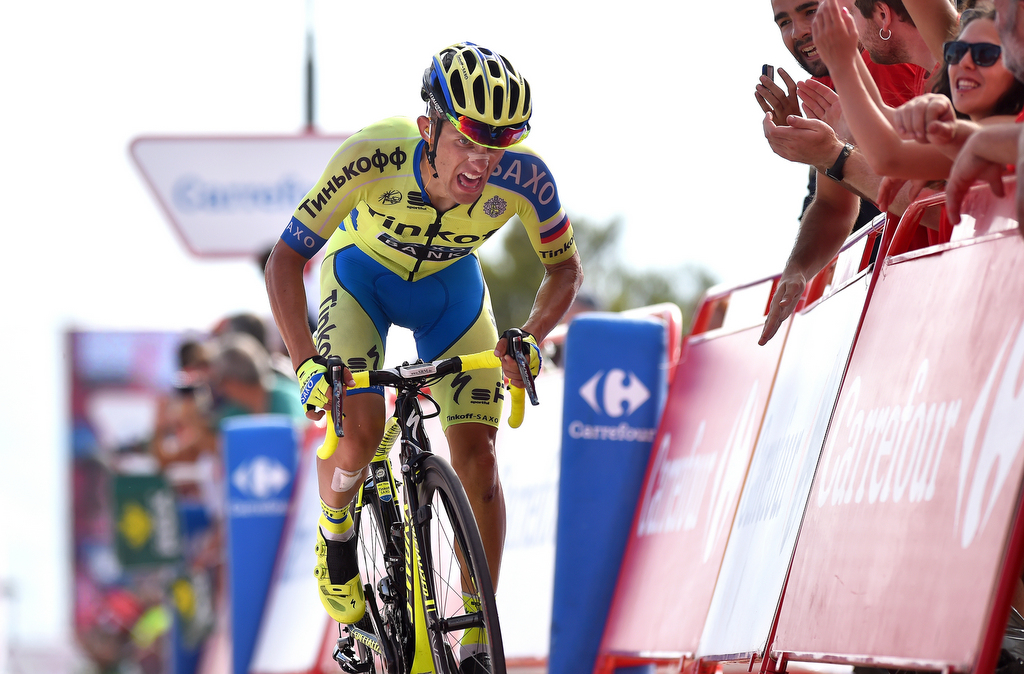
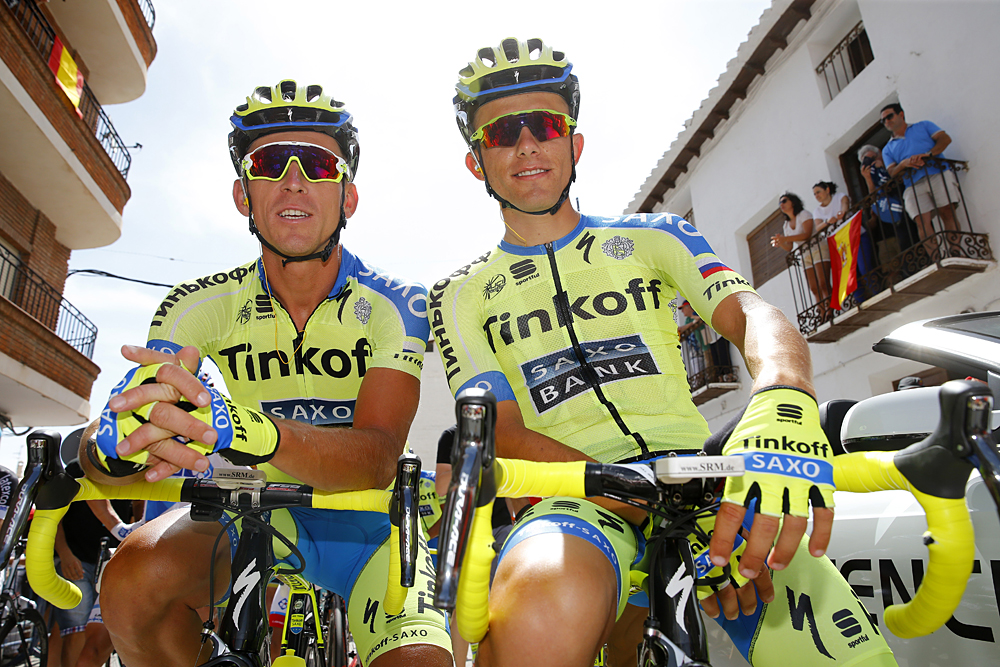
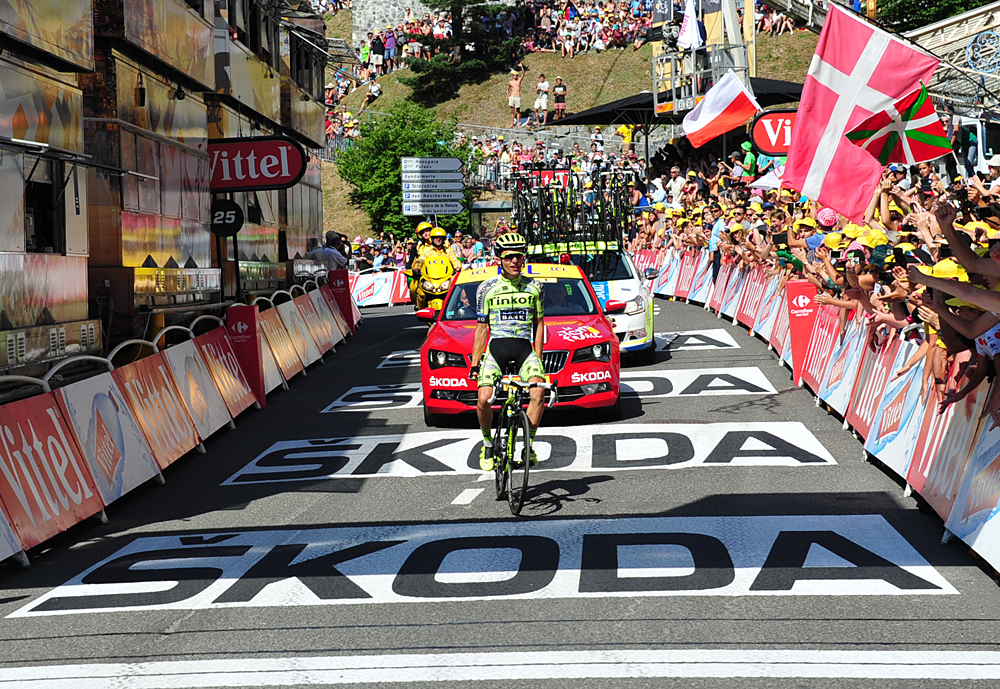
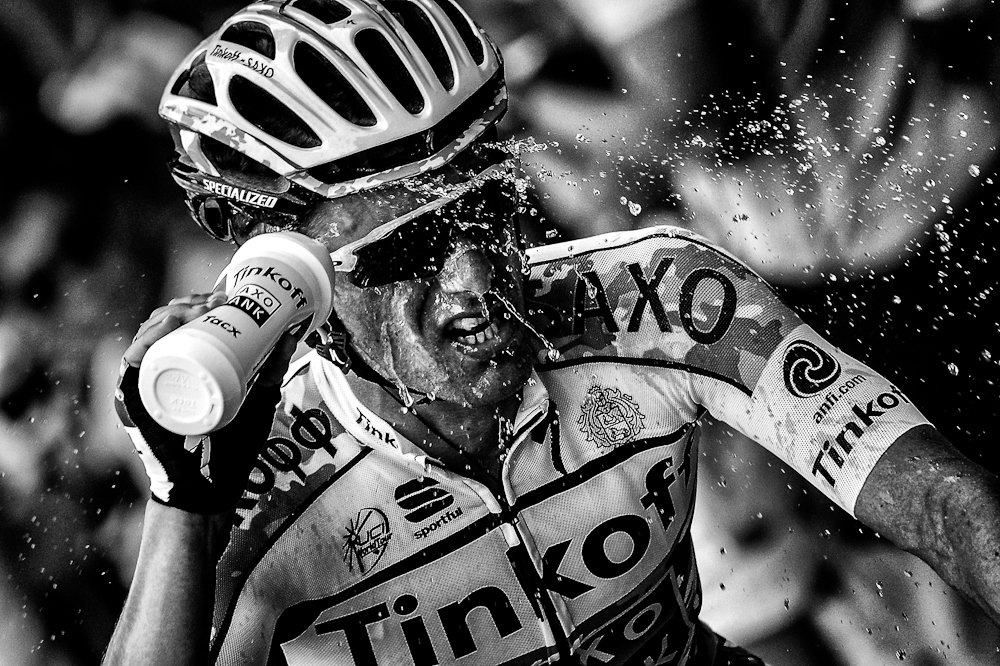
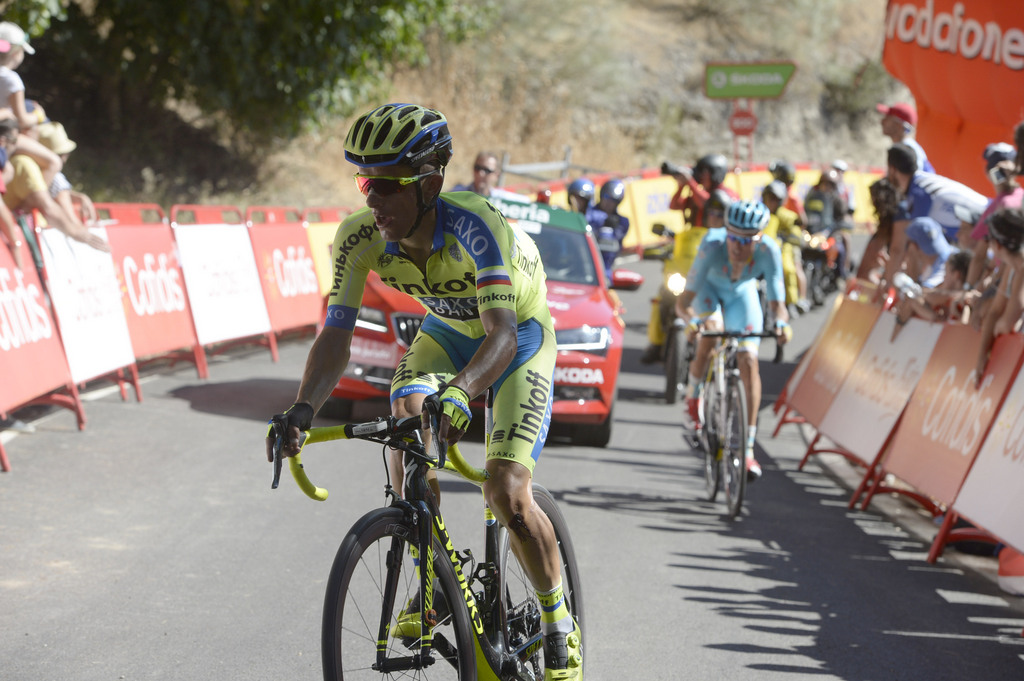
Rafal Majka reaches the Vuelta a España's first rest day excellently placed to do battle in the mountains, with hopes high at Tinkoff-Saxo that the Pole can echo Nicolas Roche’s top Tour-Vuelta performance for the team back in 2013.
Two years ago, Roche raced through the Tour as a top domestique for Alberto Contador before striking out in his own right in the Vuelta, just as Majka is doing this summer. Although Majka has yet to take a stage win as Roche did in the first week of the 2013 Vuelta, Tinkoff-Saxo’s management on the race recognise they are equally ambitious with the Pole.
"We’ve seen a very strong Rafal, we’d talked about a little bit less strong Froome but on stage 9 [to Cumbre del Sol where Froome took second] it was a very different story so everything is very open," team sports director Tristan Hoffman told Cyclingnews.
"We believe we have a lot of possibilities with Rafal. [On stage 9] they went very fast from the bottom and he needed to follow, then with one kilometre to go there was a moment when he went for it and got a little gap, but they went full gas behind him and passed him.
"We’ll see because he’s fighting against the best riders in the world, so it’s really exciting to see."
Twentieth and in the front group on stage 10, Majka is currently lying ninth at 1:47 as the Vuelta goes into ‘his’ terrain’ - the high mountains. The Pyrenees hold few secrets for the Pole; he took a stage win at Cauterets in the Tour this summer and another last year in the Tour, as well.
Previously Hoffman has said that he would sign on the dotted line if there was some way of guaranteeing a top five result for Majka in Madrid, and he is still cautious about upping those targets to, say, a podium for the Polish climber.
Get The Leadout Newsletter
The latest race content, interviews, features, reviews and expert buying guides, direct to your inbox!
"Let’s keep the goals as we had before, and dream about that. We’ll keep Rafal protected and then in Andorra on that really tough stage hopefully he’ll go with the best again."
As for how Tinkoff-Saxo will tackle the rest day, Hoffman says: "We won’t be looking at the stage, there are too many mountains. We were going to go and ride somewhere flat but that’s not possible up there in Andorra, so probably he will go half an hour uphill and then half an hour down again. Just spinning the legs. He’s had enough mountain stages already, there’s no need to adapt to them."
Although he admits he has not studied every Vuelta route, Hoffman's instinct tells him that Movistar manager Eusebio Unzué is right in saying that stage 11’s 5,000 metres of vertical climbing and six classified climbs make it "the hardest Vuelta stage ever".
"I haven’t studied all the parcours, but I think that’s correct. It’s a very dangerous stage, not just for the overall contenders, but also for the guys who are behind because of the time limit," said Hoffman.
Speaking personally, Hoffman claims that the Vuelta’s route in recent years has grown excessively difficult. "When you see the Vuelta 10 years ago, it was very different, you had ten flat stages and the sprinters liked to come here. Now it’s mostly for the climbers. They need to find a better mix again because it’s too tough."
Alasdair Fotheringham has been reporting on cycling since 1991. He has covered every Tour de France since 1992 bar one, as well as numerous other bike races of all shapes and sizes, ranging from the Olympic Games in 2008 to the now sadly defunct Subida a Urkiola hill climb in Spain. As well as working for Cyclingnews, he has also written for The Independent, The Guardian, ProCycling, The Express and Reuters.
